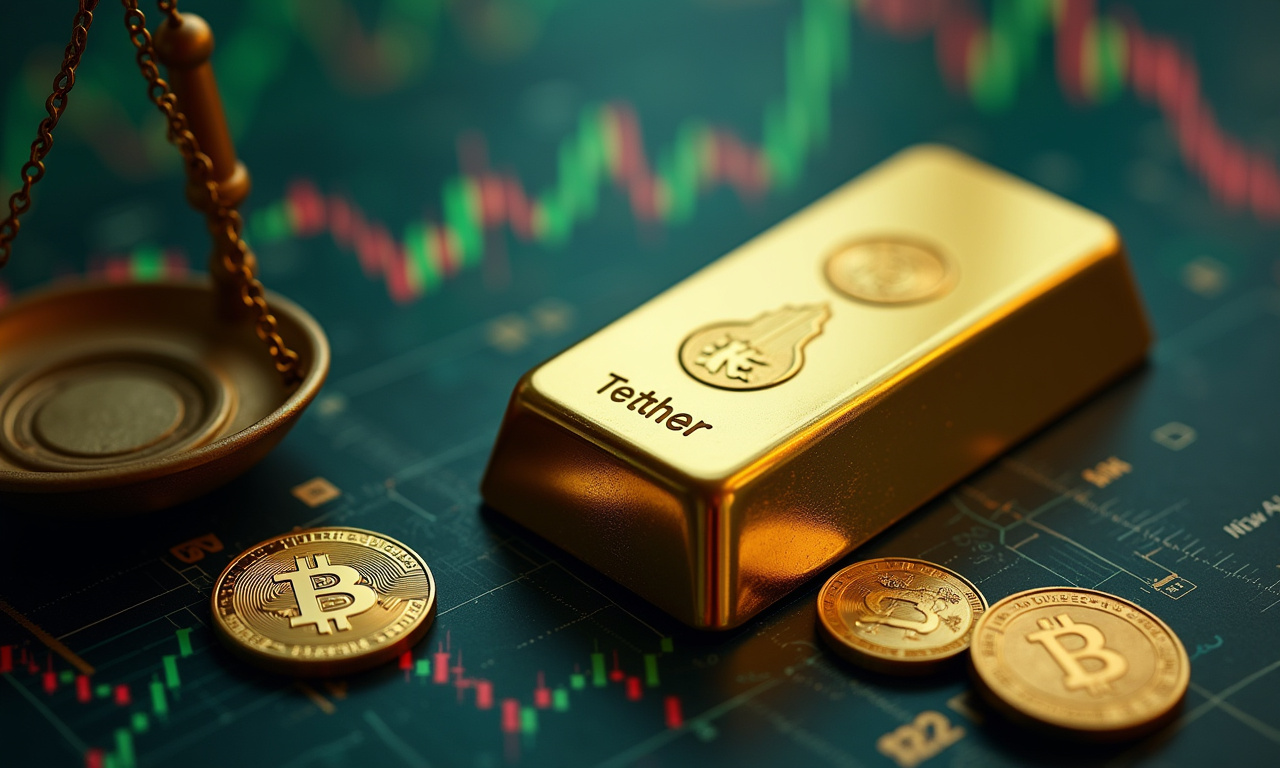Crypto's Calm Before The Storm? Here's What The Fear Index Really Means

You've probably seen it flashing on your screen, a simple number meant to tell you what's going on in the minds of crypto investors. Right now, it's hovering around "Neutral." Neutral! Just like a tepid cup of joe on a Monday morning. Don't let that fool you. Neutral doesn't mean nothing is happening. It means something is brewing.
Neutrality Hides Anxious Undercurrents
This “Neutral” reading is not an arbitrarily coolheaded, zen-like equilibrium. It’s less the Friday-before-a-holiday feeling than the moody calm before a lightning storm. They are not fools, they’re not running around euphoric throwing money at every shiny new token. But they aren't panic-selling either. They're hesitating. And that reluctance is driven by a potent mix of uncertainties.
Think about it. You have Trump talking about tariffs (again!). And then you’ve got Russia, Ukraine and Belarus—tensions really boiling over in the Middle East. And the dark cloud of regulatory enforcement actions looming over the US stablecoin market. These aren’t just theoretical economic concepts. That’s what makes them so compelling—they are real world events, with immediate and tangible impact on people’s wallets and sense of security.
Sarah is your average young professional. She put the majority of her life savings into crypto, excited to create her future nest egg. When she reads headlines about possible new regulations that will increase the cost of energy, she starts thinking about her investment going to zero. Now imagine that David is a small business owner. He plans to start accepting crypto payments, but he’s concerned about the legal gray areas there. Those are the people creating the “Neutral” sentiment. Their fear is valid.
Geopolitics Meets Your Crypto Wallet
The picture most frequently portrayed in news coverage is one of a dramatic decline in market capitalization and trading volume. So what? Numbers on a screen, right? Wrong. Those numbers express the lived experiences of real Americans retreating, opting for moderation instead of mania.
- Trump's Tariffs: Could trigger a global trade war, sending shockwaves through all markets, including crypto.
- Israeli-Iranian Tensions: Heightened geopolitical risk often leads investors to seek safe-haven assets, potentially diverting funds away from crypto.
- US Stablecoin Regulation: Could stifle innovation and create uncertainty for stablecoin users.
These factors aren't just academic talking points. They're creating a climate of uncertainty that's making investors nervous. And a scared investor is a paralyzed investor.
The Altcoin Season Index being at a low strengthens this point. Users are making the decision to hold onto their Bitcoin. They consider it the “safe haven” of the crypto space and are fleeing the more dangerous altcoin sector. It's a classic flight to safety.
Leverage: Fear's Dangerous Partner
Then there's the liquidation data. Over $319 million liquidated in 24 hours. That's not just numbers. That's ruined lives. It is 105,830 traders. That's the dark side of leverage. Fear and greed can lead everyday folks to take dangerous flyers, looking to strike it rich overnight. When the market eventually does turn, those bets can blow up spectacularly.
Consider the trader who lost $4.23 million on one ETH/USDT trade on Binance. That wasn’t a faceless foreign hedge fund; that was probably an American individual trader over-leveraging himself. And that's a tragedy.
Because it illustrates the psychological pressures that are inherent in trading crypto. The constant volatility, the fear of missing out, the temptation to use high leverage to amplify gains – it's a recipe for disaster.
It’s tempting to scoff at the Fear & Greed Index as just another coincidence. And yet while that’s wildly gimmicky, it’s a fascinating window into the collective psyche of the crypto market. And at the moment our collective psyche is sending us a message that things are just not OK. The market is clearly hesitant, looking for a positive catalyst. It's a market on edge.
So, what can you do? Don't panic. Don't make rash decisions. Do your research. Understand the risks. Remember that "Neutral" doesn't mean safe. It means be careful. It means be prepared. Or worse, it could mean the storm is a lot closer than it appears.
The new “Neutral” sentiment comes on the heels of concerns about geopolitical events and regulatory unknowns. If the wrong domino falls, it can very quickly turn into “Fear.” That’s when things might get most interesting and most painful.
The current "Neutral" sentiment, fueled by anxieties about global events and regulatory uncertainty, could easily tip into "Fear" if the wrong domino falls. And that's when things could get really interesting – and really painful.

Ava Thompson
Blockchain Market Psychology Editor
Ava Thompson explores blockchain and market psychology through an evidence-based yet human-focused lens. She bridges strategic thinking with direct, nuanced communication, and her work features a balance of in-depth analysis and relatable storytelling. Outside the newsroom, Ava is an avid urban gardener and street art enthusiast.
Related News

Altcoin Apocalypse? Why Bitcoin's Dominance Surge Should Terrify You
Forget the Lambo dreams. Forget the moon shots. So in the current state of things if you are a big holder of altcoins, you should be scared to death. Bitcoin’s recent dominance surge isn’t just a momentary spike, it’s a flashing red warning light. This does not indicate positive fundamentals...

Tether Gold (XAUt) Risks You Can't Ignore, and How to Navigate Them
XAUt, Tether’s gold-backed token, offers the glitter of gold with the convenience of crypto. Sounds great, right? Maybe. In the information age, the hunt for treasure has changed entirely. We no longer protect our treasures with maps and shovels, but rather blockchains and private keys. Before you begin this tech-driven...

Tether Gold (XAUt) is the Future of Gold Investment, Here's Why
Traditional gold is dead. Well, not dead perhaps, but definitely of on life support. Think about it: you're either lugging around heavy bars in a vault (and paying someone to guard them), or trusting some ETF to actually have the gold they say they do. That's your 'store of value'?...